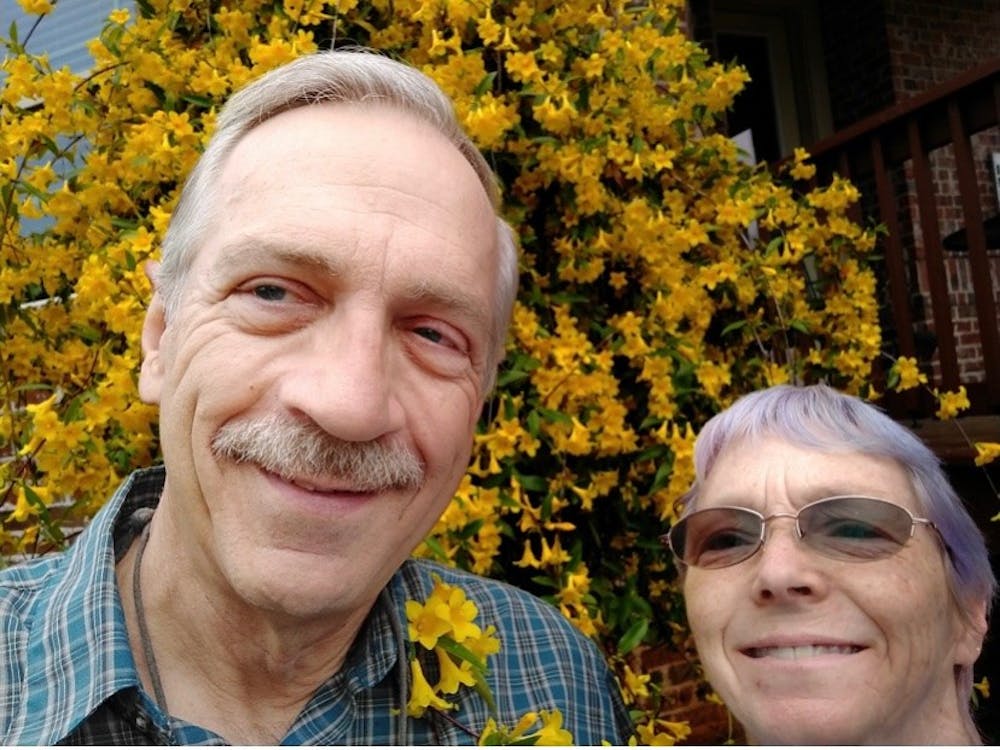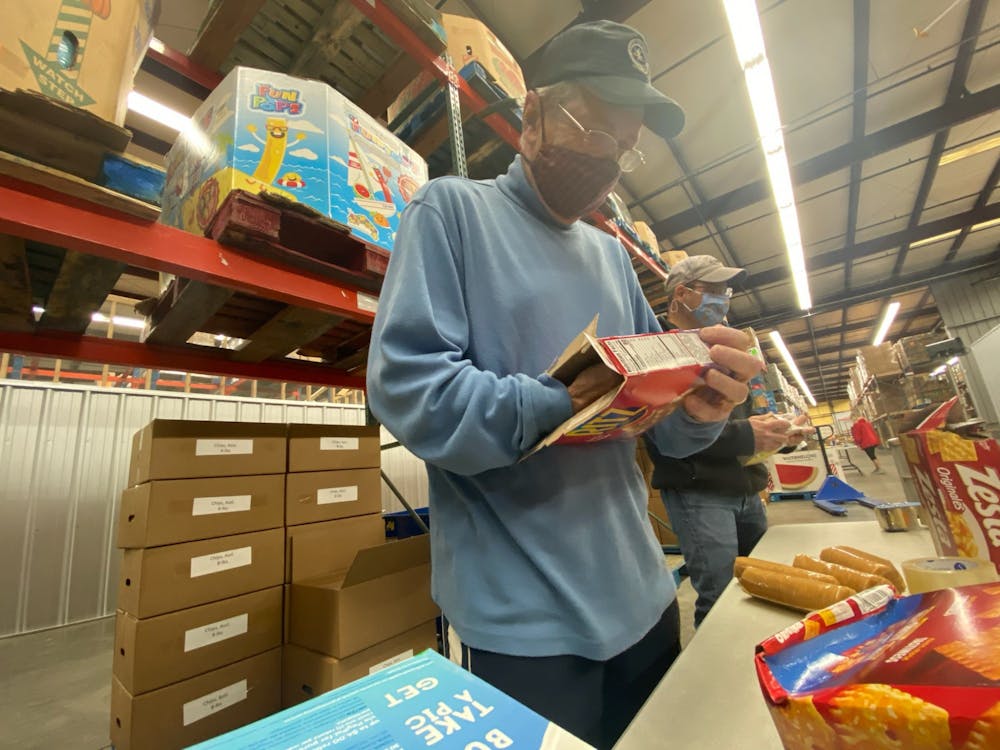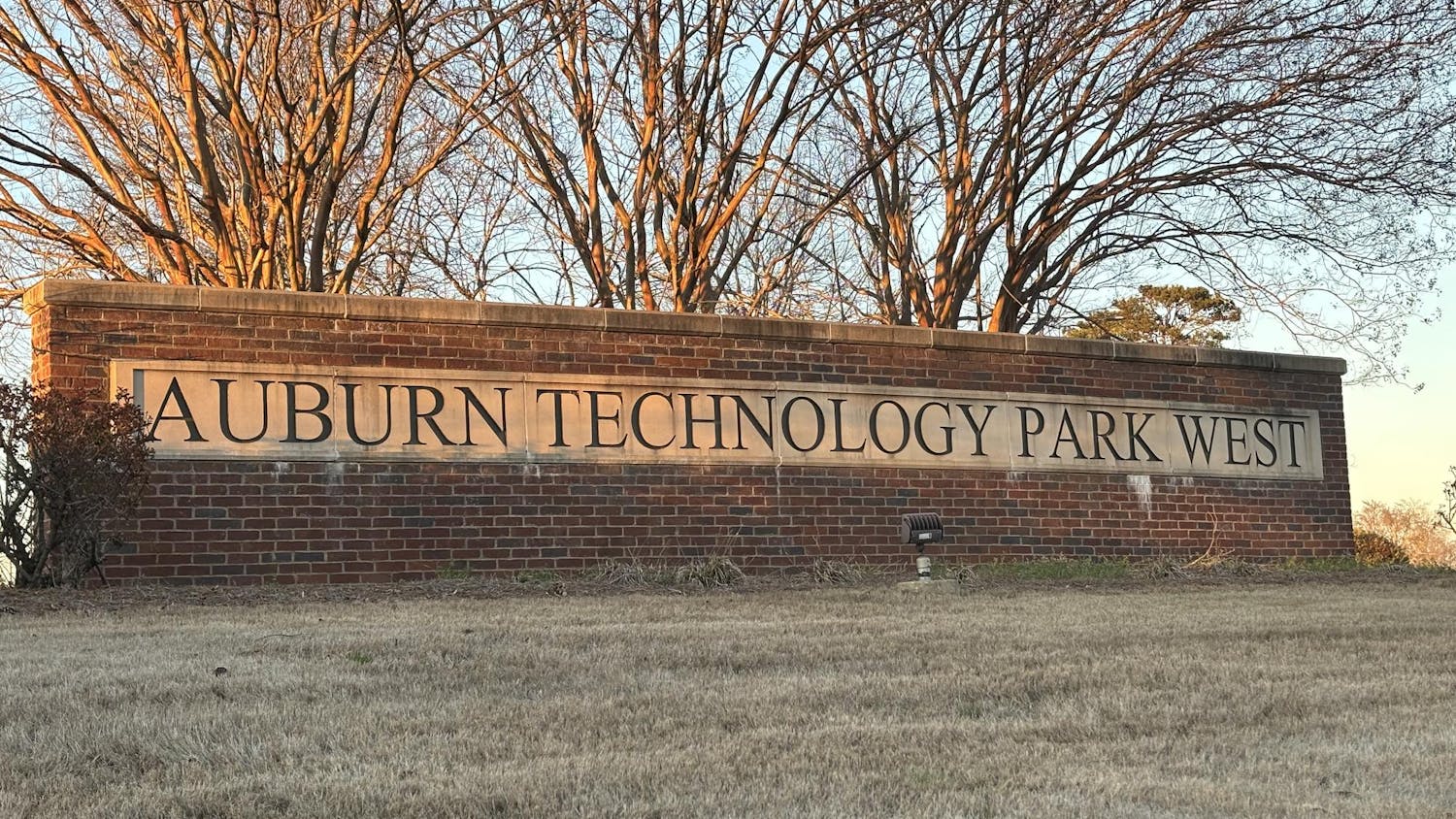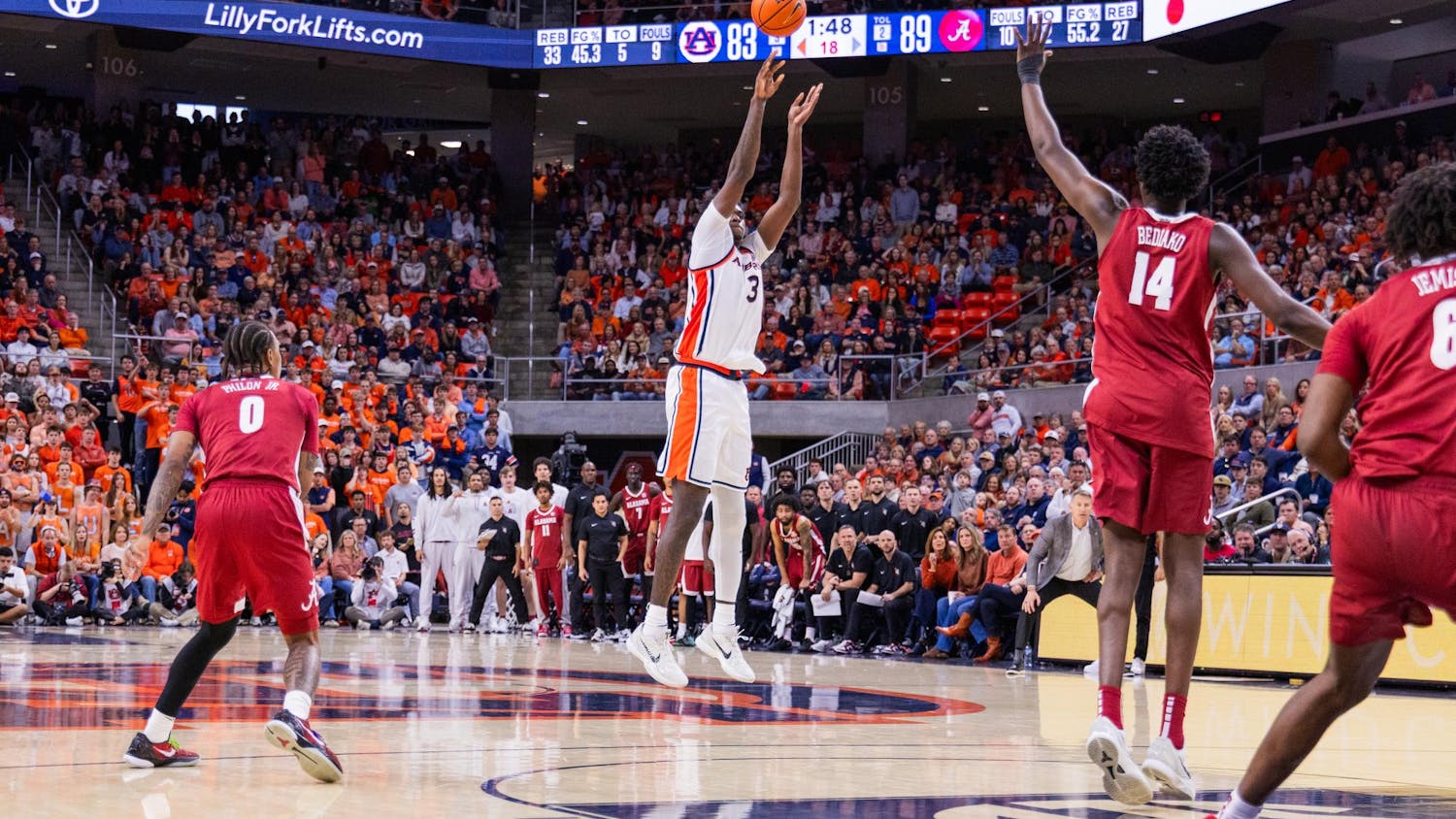With a face riddled with wrinkles, the thin-haired man sealed up boxes of Del Monte's green beans with a tape gun. As warehouse lights beamed down on his salt-and-pepper-colored hair and sweat rolled down his face, the man lifted the first of many packages and placed it on a cart.
This is work, hard work. But this is a regular assignment James Newton, 66, takes on without pay regularly. The rewards come from knowing that citizens who will benefit from his free labor will not go to bed hungry.
Since the beginning of the COVID-19 pandemic, Newton has volunteered at the Food Bank of East Alabama almost every day. Newton said he decided to step up to combat hunger after reading about the increase in food insecurity caused by the pandemic.
"I don't have much to do these days like I used to,” Newton said. “I used to work 10-12 hour shifts sometimes, and I haven't worked in years."
Before retiring, Newton was a researcher and engineer for over 30 years. He earned his doctorate in physics at the State University of New York at Albany, in Albany, New York. There, he researched the function of solar cells and solar radiation and has worked for several engineering firms in New York, Pennsylvania and Virginia.
Newton said he did not want to "twiddle his thumbs" while many suffered from food insecurity, so he made it his responsibility to provide food and meals to the hungry in times of distress. Though he volunteers at the food bank, Newton said he's never struggled with food insecurity, never received goods from an agency and had never volunteered at a food pantry before the pandemic.
"There are hungry people out here, and it's worse because of the pandemic," Newton said."I had to help my community during a crisis. So, I spend my time wisely by helping to feed the hungry people in the area."
'An abundance of food'
Newton grew up on a farm in Chateaugay, New York, a town 15 miles away from the Canadian border, during his childhood. His parents, who survived the Great Depression, purchased the ranch as a source of income and food access. They produced fruits and vegetables such as corn, tomatoes and cabbage. Along with having a vegetable garden, they drank milk from cattle and consumed livestock.
“I had very little clothes. I had my barn clothes and my school clothes, that was it,” Newton said. “The only pair of jeans that I owned, I wore at the barn.”
Though Newton said he grew up poor, did not have many toys or the latest articles of clothing, he said he was surrounded by “an abundance of food” and going hungry was never a concern.
“Every day and every night, there was a meal on the table,” Newton said. “I ate well, at least three times a day. When I laid my head down on the pillow, my stomach was satisfied."
Newton and his wife, Janette, married in 1988 after meeting each other through a mutual friend in Knapps Station, New York two years prior. At the time, he was a physicist, and she was a ballet instructor. The family relocated to Auburn after Newton accepted a job opportunity to invest ownership in an engineering facility, but it did not come to fruition.

Janette Newton (right) said she regards her husband James (left) to be a "dedicated volunteer" of the East Alabama Food Bank,
Newton's wife, Janette, does not regularly volunteer at the food bank but expressed admiration for his efforts. She called her husband, whom she nicknamed Jim, a "dedicated volunteer" whose main goal is to lessen the food insecurity rate in the area.
"Jim's volunteering at the food bank gives me a sense of pride," Janette said. "It makes me happy that his volunteering helps people in our community while, at the same time, brings him satisfaction."
Not just a job
Because Newton spends a large amount of time at the food bank, he has developed relationships with some workers. Tony Laney is one of those employees.
Laney has been employed at the Food Bank of East Alabama for over ten years as a salvage coordinator. The salvage department ensures that incoming goods are serviceable and ready for consumption. Laney also assists volunteers who sort through thousands of pounds of food from Monday through Friday.
Laney said Newton "truly cares" about others. He said Newton's determination to feed the hungry showed him that Newton is committed to bettering his community.
"He's a good dude," Laney said. "I don't know many people who would want to get up every morning to volunteer. See, I work here, I get paid to do this, but he is doing this from the kindness of his own heart."
He said Newton's mission has led him to rethink the value of his own job.
"Since he started showing up and being consistent with his mission, I started to view it as more than just a job and more as an act of service," Laney said. "It's an honest way to help hungry people."
While Newton said he does not mind assisting at the food bank, he wants to change policies to combat food insecurity in the area. Newton said the government should provide more funding to food agencies and establish more food banks through rural communities. If able, he said he is willing to work with local and national governments to implement more resources.
Until then, he said he would continue to lace up his shoes and continue to volunteer.
"I will volunteer here every day if I have to," Newton said. "I do not want a medal or trophy or anything like that, I just want to help my community. I do this because I love my community and the people in it."
Do you like this story? The Plainsman doesn't accept money from tuition or student fees, and we don't charge a subscription fee. But you can donate to support The Plainsman.





